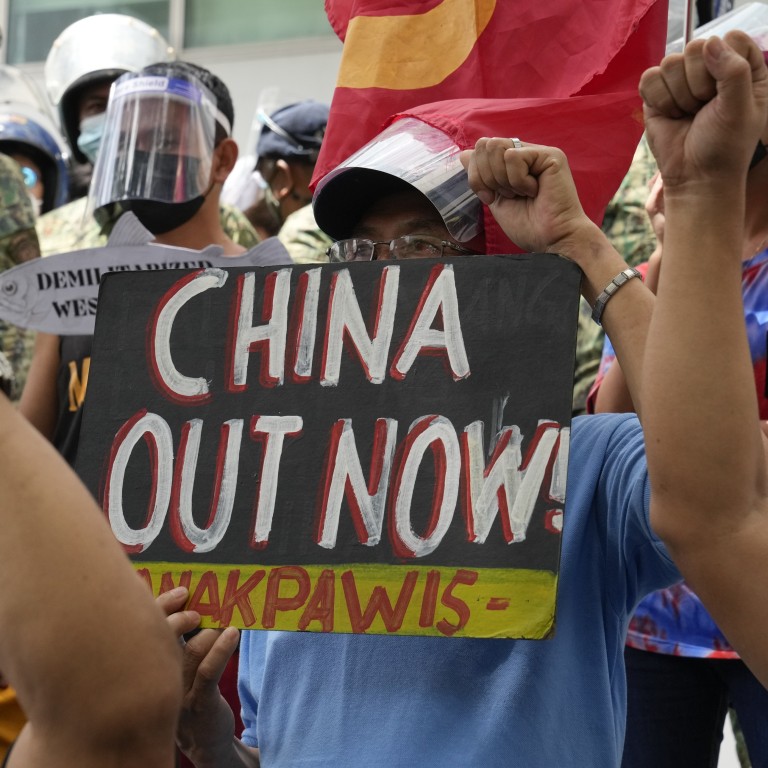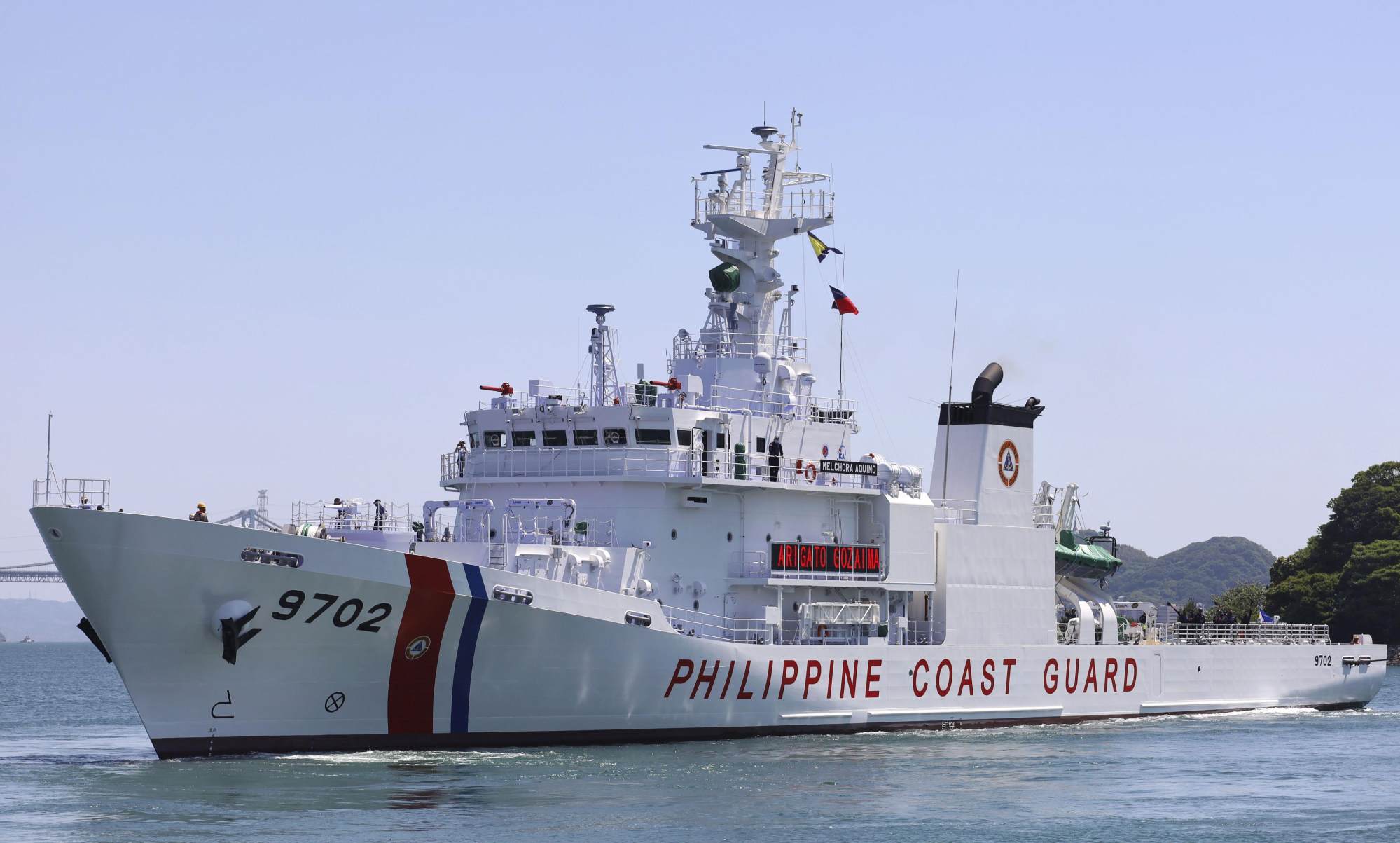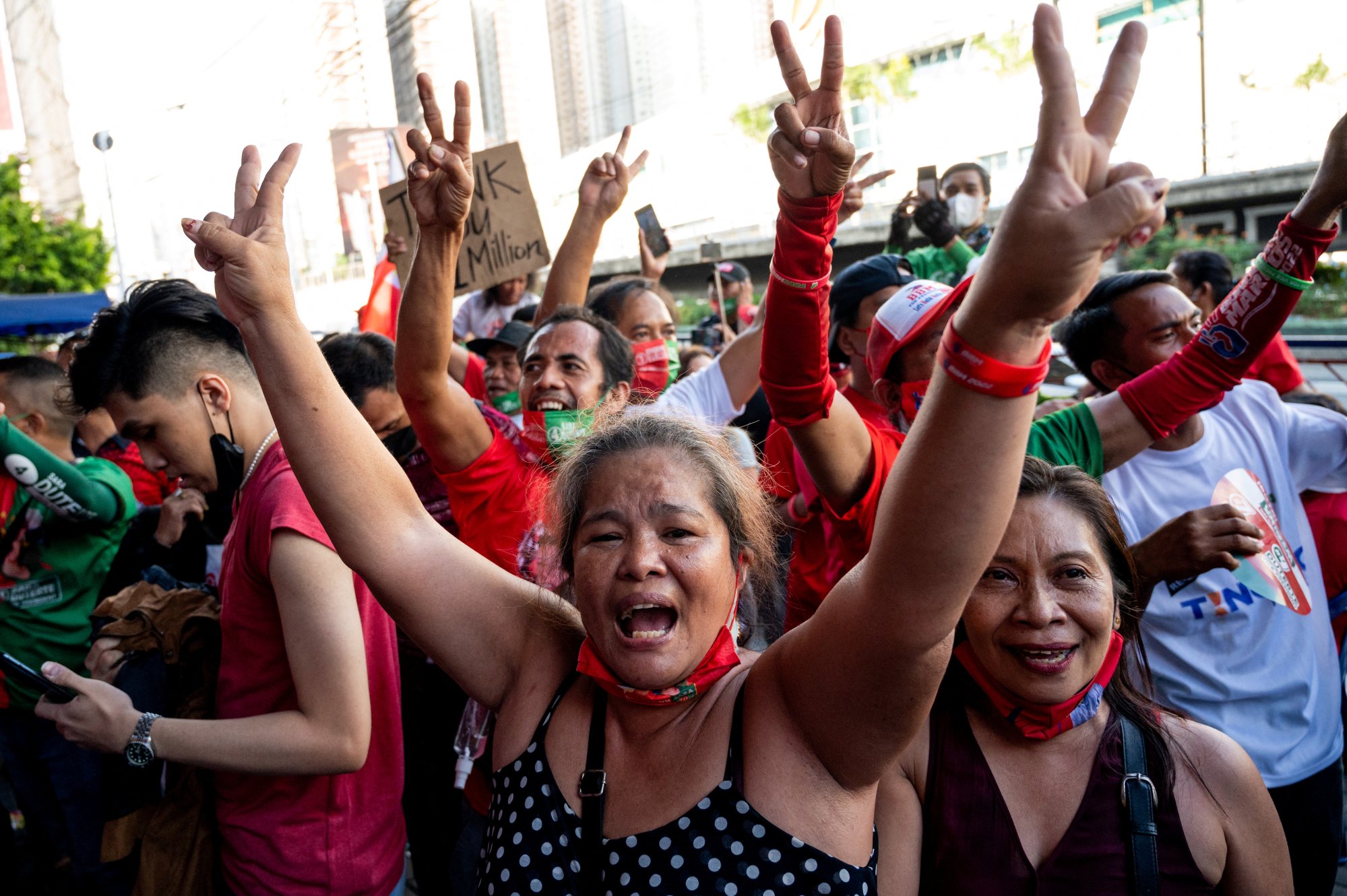
South China Sea: Marcos says he won’t allow Philippines’ rights to be trampled upon
- The president-elect’s remarks were welcomed by observers who have been critical of Manila’s less aggressive approach towards the dispute since Duterte’s pivot towards China
- Marcos told reporters he had discussed with Xi the need to work through ‘conflicting terms’ in the dispute, but a statement by Beijing about the phone call did not mention those details
Philippine President-elect Ferdinand Marcos Jnr this week gave the first indication of his incoming administration’s stance on the South China Sea after vowing he would champion the country’s interests in the disputed waterway, in statements welcomed by analysts.
Marcos made the surprise remarks on May 26 when he told a select group of TV stations that he would use the 2016 UN arbitral ruling to assert “our territorial right” against Beijing’s sweeping claims in the South China Sea.
“Our sovereignty is sacred and we will not compromise it in any way. We will not allow a single square millimetre of our maritime coastal … rights to be trampled upon,” he said, adding that he would pursue the issue through diplomacy “consistently with a firm voice”.

His views were an about-turn from what he said before the polls, when he suggested there was no point in supporting the tribunal win if China kept disregarding the ruling.
Nevertheless, the remarks were welcomed by observers who have been critical of Manila’s less aggressive approach towards the dispute since President Rodrigo Duterte embarked on a diplomatic pivot towards China over the past few years.
During a forum on maritime security on Tuesday, De la Salle University International Studies Professor Renato de Castro noted that Marcos had come out with “a very important foreign policy announcement” even before taking his presidential oath on June 30.
What does a Marcos Jnr presidency mean for Asean and democracy in the region?
While De Castro acknowledged foreign policy pronouncements by politicians may not always be acted upon, he said what Marcos did was a marked departure from Duterte, who had never come out with any concrete strategies apart from saying he would set out an “independent foreign policy”.
Manhit noted that pre-election poll surveys had shown “82 per cent of Filipinos believe we should assert our rights” in the South China Sea, and among all the presidential candidates, respondents indicated that Marcos was the best person to assert these rights.

As to which country could best help Marcos in defending the Philippines’ territorial rights in the South China Sea, Manhit pointed out that poll surveys through the years had consistently shown that China was trusted as a Philippine ally “only by two out of 10 Filipinos”.
The United States always topped the most trusted country list in the same surveys, said Manhit, the founder and managing director of Albert del Rosario Institute for Strategic and International Studies, a Manila-based think tank.
Manhit suggested that the Marcos administration “should start prioritising multilateral and inclusive cooperation with other like-minded states that will uphold the rule of law and prevent any unilateral action that can undermine peace and stability in the Indo-Pacific”.
Marcos Jnr chooses stability in naming cabinet to restore economy, family name
Marcos’ comments came two weeks after he spoke on the phone with US President Joe Biden and later with Chinese President Xi Jinping when they both congratulated him on his election.
Among all the Philippines’ past leaders, Marcos has the closest personal ties with China. His father was the one who opened diplomatic relations between Manila and Beijing.
In March this year, Marcos’ wife said in a TV interview that they had travelled to Beijing to meet Chinese officials even when he was Ilocos Norte governor.
During his May 26 television interview, Marcos said he had discussed with Xi the need “to discuss conflicting terms that we have … and China has with other members of Asean”.
But the May 18 press statement released by China’s Ministry of Foreign Affairs regarding their conversation made no mention of such a discussion.
The statement opened with Xi calling Marcos “a builder, supporter and promoter of the China-Philippines friendship”.
It followed with a paragraph quoting a popular Philippine proverb about the pitfalls of ingratitude. “Citing a Philippine saying, ‘If you do not know where you have come from, you cannot go far’, Xi urged both countries to carry forward the friendship of the two sides and stay true to their original aspiration.”

